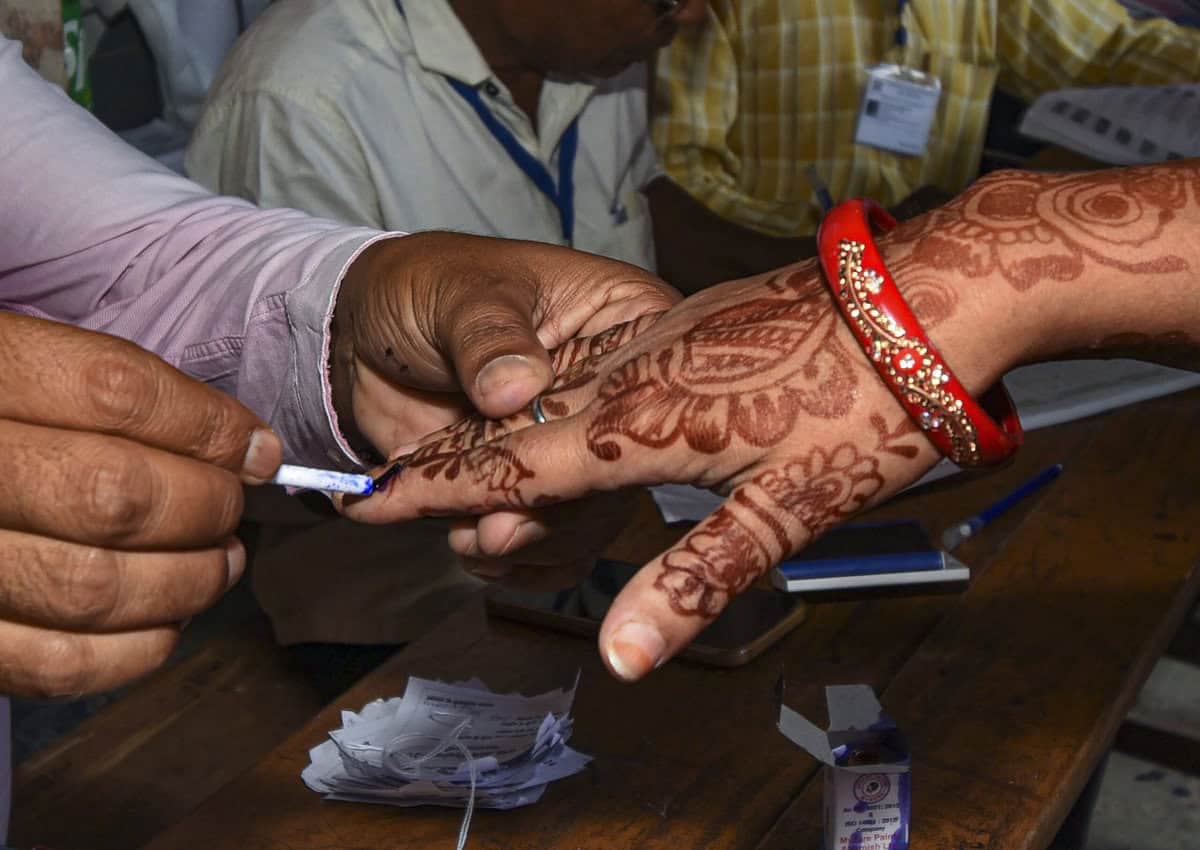
India is the largest democracy in the world now and is currently in the midst of one of the world’s largest elections. But how many young eligible Indians are expected to turn out?
Now, let’s pivot to the voter turnout over the past decade among the 18-25 age groups, both nationally and in India’s major urban centers. Recent statistics from the ECI reveal that youth voter turnout in India has been consistently lackluster, hovering around 50-55% during general elections. In metropolitan areas such as Mumbai, Delhi, Bangalore, Kolkata, and Chennai, the turnout rates mirror this trend, indicating a palpable disengagement among young voters.
The latest data by the Election Commission shows that less than 40% of the voters between 18 and 19years have registered for the 2024 elections across the country. This data concerns a growing country with a large youth population. The voter turnout and active participation have always been a topic of discussion and one that needs attention. Each election year, an increase, and a steady increase in voter turnout is expected. The expectation is often unmet. Certain states such as Bihar, Delhi, and Uttar Pradesh have particularly low enrollment rates, with less than a quarter of eligible individuals registering to vote.
But why are young Indians increasingly disenchanted with the political and societal constructs of democracy? The answer lies in a complex interplay of sociological factors. Firstly, there’s a pervasive sense of disillusionment with the political establishment. Rampant corruption, dynastic politics, and governance failures have seemed to have eroded the trust of the youth in the democratic process. Many perceive politics as a realm dominated by self-serving elites, disconnected from the grassroots realities of ordinary citizens.
Moreover, the rapid pace of urbanisation and globalisation has reshaped youth’s aspirations. In the pursuit of economic opportunities and personal ambitions, political engagement often takes a backseat. The allure of material success and individualistic pursuits eclipses the collective responsibility towards nation-building. Additionally, the widening gap between political rhetoric and ground realities further alienates the youth, leaving them feeling marginalised, disappointed and voiceless.
However, amidst this landscape of apathy, there are glimmers of hope. A segment of young Indians is defying the odds and actively participating in the electoral process. Recent electoral data indicates a surge in youth voter turnout and engagement in grassroots movements and political activism over the past five years. Telangana stands out as a remarkable anomaly, boasting more than 800,000 individuals aged 18 and 19 years registered to vote. This accounts for roughly 66.7% of the estimated population within this age cohort in the state.
But who are these young voters, and what motivates them to cast their ballots despite prevailing apathy? Their mindset is characterised by a potent blend of idealism and pragmatism. They view democracy not merely as a right but as a tool for social change and progress. Issues like social justice, environmental sustainability, and inclusive governance resonate deeply with this demographic, propelling them to actively engage with the political process.
In conclusion, the apathy of young Indian voters is a pressing issue that demands urgent attention. The future of democracy hinges on the active participation of all citizens, especially the youth who represent the torchbearers of change. It’s incumbent upon the state to recognise its responsibility towards its electorate and take proactive measures to foster a culture of informed, involved, and engaged citizenship.
This entails revamping civic education to instill political awareness from an early age, facilitating voter registration drives tailored to young adults, and creating platforms for meaningful civic engagement. Political parties, too, must strive to connect with the youth on issues that matter to them, thereby bridging the gap between rhetoric and reality. Despite ongoing endeavors by the Election Commission and political factions to encourage voter registration through awareness drives and the inclusion of younger candidates, tackling the root causes of voter disinterest among India’s youngest demographic remains a formidable obstacle that requires continuous commitment and educational endeavors.
Ultimately, the onus lies not just on the state but on every citizen to uphold the democratic values that underpin our society. By empowering the youth and nurturing their participation in the electoral process, we can pave the way for a more inclusive and responsive democracy where every voice is heard, and every vote truly counts.
Anjana Divakar is a policy researcher and the Executive Director at the Centre for Development Policy and Practice, a research institute based in Hyderabad.
